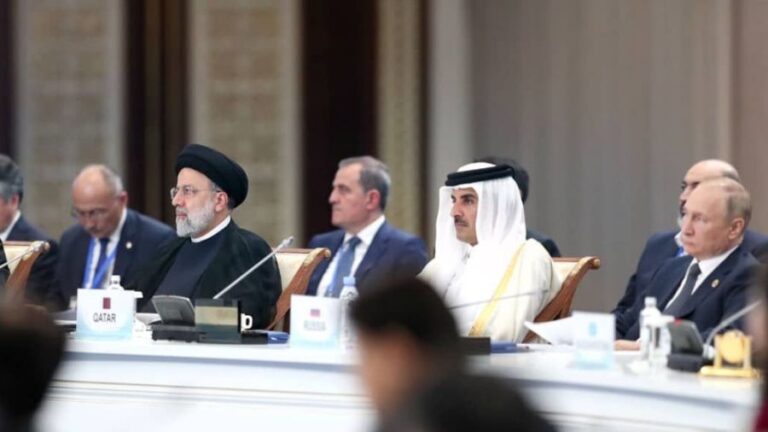India’s Assam Citizenship Scandal Could Have Wide Reaching Geopolitical Implications
India strikes fear into the hearts of 4 million Muslims
India has drafted a controversial list of the country’s citizens which has made international headlines due to four million people living in the Indian state of Assam being excluded from the list. The Bengali speaking Muslims whose presumed citizenship status was effectively removed has left them worrying that they might become stateless or even face ethnic cleansing as a result. It is thought that some though not all of the 4 million in question arrived in India during the 1971 India-Pakistan War which resulted in East Pakistan gaining independence as Bangladesh.
Remember the Rohingya?
The recent crisis in Myanmar’s Rakhine state involving violence between Buddhists and Rohingya Muslims also bears a causal relationship to the 1971 war as many of the Muslims in Rakhine either fled East Pakistan during the 1971 or otherwise fled modern Bangladesh as economic migrants in the decades that followed. Crucially, because of a combination of war and poor bureaucratic organisation, many of the individuals in question in both India and Myanmar do not and never did have any formal paperwork as most of the individuals in question are incredibly poor without any bank accounts let alone property formally in their names.
The situation in Rakhine was ultimately resolved in the form of a Chinese authored peace process which will see millions of Rohingya normalised as citizens in Myanmar while China is helping both Bangladesh and Myanmar to re-house refugees effected by the violence. Crucially, it must be noted that during the peak of the crisis in Rakhine, Bangladesh made it clear that due mainly to economic conditions with a clear socio-political subtext, there simply was not a way for the country to accommodate all of the Rohingya who in some cases crossed back into Bangladesh after initially fleeing into Myanmar.
While New Delhi has gone into PR over-drive in offering assurances that the four million de-facto stateless individuals in Assam will not be subject to mass re-location outside of India in what would amount to ethnic cleansing, a great deal of damage has been done to India’s reputation in the wider Muslim world as the Assam scandal is now widely regarded is part of a wider atmosphere of hostility towards Muslims that has arisen in India along with the ascendance of Narendra Modi’s BJP government. Crucially, if India were to force some of the four million into Banglaedsh, one could foresee a similar response from Dhaka that was issued during the height of the Rakhine crisis.
India and Myanmar – a contrast in soft power perception
Owing to China’s ever more meaningful relations with Myanmar, western countries led by the United States were quick to unilaterally blame the scenes of violence and horror in Rakhine solely on Naypyidaw while neglecting to realise that a number of local issues were at play including violence between poor Buddhists and poor Muslims in Rakhine who had no affiliation with the state. Indeed, the crisis in Rakhine was a recent outgrowth of the manifold series of civil conflicts that have raged in Myanmar since 1948.
Be that as it may, because Myanmar was perceived as being “too close to China” one saw a brief moment when the United States strangely united in terms of soft power with multiple Muslim nations who rightly condemned the violence in Rakhine but misguidedly condemned Naypyidaw for instigating the violence.
By contrast, the situation facing the four million in Assam is entirely of New Delhi’s own making. A frozen issue has simply been ignited by New Delhi – at best because of managing the citizen list very poorly or at worst because of an attitude of malice from the BJP government. And yet, because India has become a valued prater for the US in its mutual goal of antagonising China and provoking Pakistan, it is doubtful that the US will issue a stern rebuke to India over a matter of severe humanitarian and psychological distress.
The law of unintended consequences
While relations between Pakistan and Bangladesh remain generally poor, Dhaka’s ties to China continue to grow, especially where economic investment and the possibility of One Belt–One Road connectivity are concerned. At a time when a fresh faced Imran Khan is about to form a new government in Islamabad, India’s treatment of Muslims which has been widely condemned by commentators from the Arab world to Malaysia could help to potentially foster a thaw in relations between Pakistan and Bangladesh. If Bangladesh realises that its old partnership with India now bears less fruit than that which is possible via One Belt–One Road, combined with fears that India could provoke a new and very much unwanted crisis on Bangladesh’s border, the dominoes for a seemingly unlikely thaw could be in place.
China could potentially help to foster such a win-win reconciliation, however minor, as it is clearly in China’s interests not to have one key One Belt–One Road partner Pakistan continue its history of poor relations with an emerging One Belt–One Road partner in Bangladesh.
In this sense, even if the issue in Assam is resolved by India taking appropriate measures to normalise the position of 4 million people who have self evidently just been made stateless, enough soft power damage could be done to foster a change in the status of Bangladesh in the eyes of the wider region.
Conclusion
What is clear for the time being is that Bangladesh is in no shape to take on 4 million new would-be refugees in the same way that the Rakhine crisis put a strain on Bangladesh that would have been untenable without China’s constructive intervention. It is equally clear that while Rakhine was a powder keg lit from a number of matches, the issue in Assam is the result either of bureaucratic incompetence or bureaucratic bullying.
What is less clear is what India actually plans to do to resolve the status of the four million in question as well as how it will impact existing geopolitical relations in south Asia. However, what is clear even in this respect is that for seemingly no good reason, India has set off a chain of events that in one form or another will confirm to the law of unintended consequences.







